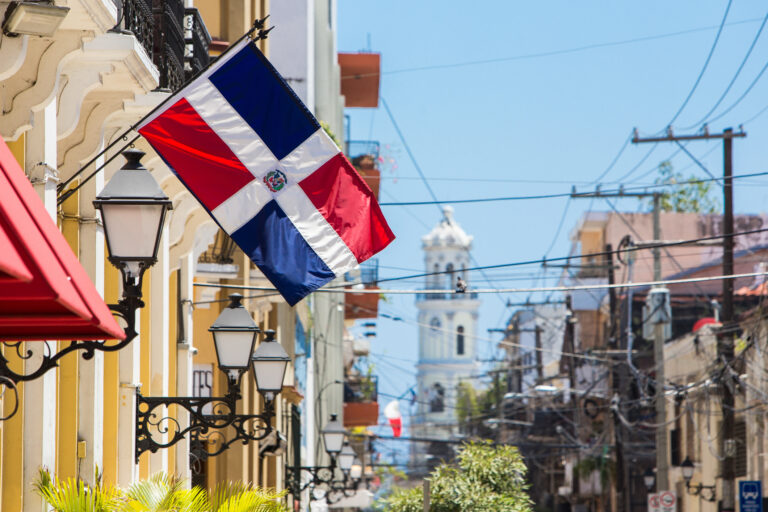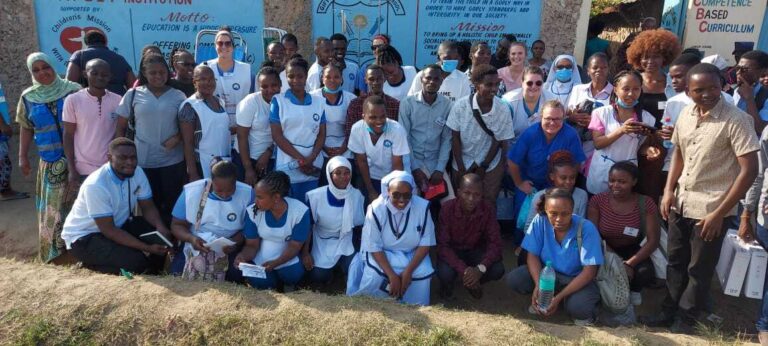Five years ago the Member States of the United Nations convened an enormous international conference in Cairo, Egypt on the subject of population and development. No need to retell that story here, except to say that it will rank as a major battlefield in what some call the War Between the Culture of’ Life and the Culture of Death.
This year, the UN begins a five-year review of the original Cairo Conference. This June the UN General Assembly will convene a special session specifically on population and development. Called Cairo+5, it will review the progress of implementation of the Cairo Program of Action. It will also try to expand so-called reproductive freedom all over the globe, including the legalization of abortion-on-demand. Also, now that the wealthy north and west have nearly stopped reproducing, population controllers and radical feminists must continue suppressing the population of the poor south and east.
A Cairo+5 preparatory committee meeting occurred in The Hague a few weeks ago. The radical feminists and population controllers, both UN bureaucrats and non-governmental organizations, stage-managed three conferences over eight days. They played a very heavy hand, not allowing true governmental input; harassing dissenting voices, and finally producing three highly discredited documents they will try to foist upon the Special Session of the General Assembly in June.
The Hague Forum, the NGO (non-governmental organizations) Forum, and a Youth Forum convened in The Netherlands for several days in February. By conference-end, it was clear to many observers that the 177 participating UN Member States were little more than props in a propaganda play produced by UN population-control bureaucrats and their allies on the far left. If governments were props in this play, it was also clear that participating youth and NGOs were no more than curtains and furniture.
Abundantly clear, and in one case perhaps violently so, was that pro-family voices were not at all welcome.
Dissenting Opinion Shunned
Most UN conferences are convened by the Member States for the Member States. What this ensures is at least a modicum of democratic procedures. The Hague Forum, however, was owned and operated by the United Nations Population Fund (UNFPA), one of the main fonts of radical feminism and population control aimed at the developing world.
In addition to the Member States, 720 handpicked NGOs participated, members of the so-called “civil society” that provide democratic cover for what can be very undemocratic affairs. NGOS held their own two-day conference that was also run by radical UN feminists. A Youth Forum also convened, comprised of young people from around the world who were invited exclusively from UNFPA front groups.
As an added feature to these proceedings, dissenting opinion was not allowed. Of the 720 NGOs allowed into the event, only six pro-life and pro-family NGOs were approved, and this after weeks of intense negotiating. Moreover, conference organizers made these mainstream groups (International Right to Life Federation and others) promise that they weren’t “clinic bombers.” Marianne Haselgrave of the Dutch-based World Population Foundation and chief organizer of the meeting told pro-family NGOs that there was a quota to keep out certain groups. Her boss, Wouter Meijer, admitted to leaders of these groups that they were suspected of intending to disrupt the proceedings. Incredibly, the Holy See delegation was charged with the same thing.
Harassment of the Press
Harassment began almost immediately. Several journalists were questioned closely when they tried to register on the first day of the conference at the National Congress Center, which is not far from the Dutch Parliament building. Andy Biggs, an American accredited to cover the event, was quizzed about why an American would be covering the event for a Canadian news magazine. Bachar Jamali, a Muslim reporter for a Saudi newsmagazine, was not allowed accreditation because his editor’s name was not typed on his assignment letter. Eventually accredited, 26 year-old Jamali was later handcuffed and ejected from the event for allegedly stirring up young Muslims at the Youth Forum. For these and other abuses a U.S. Congressional inquiry is under way.
Given this line-up of players, and this set of circumstances, the outcome of these conferences was not at all surprising. Three documents were produced, each one alarming in its lack of democratic procedures, each one shocking in its radicalism.
Targeting the Youth
By far the least influential but most alarming is the document produced by the Youth Forum. Organizer Haselgrave admitted at a press conference that the youth participants were all chosen from UNFPA front groups. Unanimity was front-loaded. The youth document makes mandatory “‘the enlightenment, education and sensitization of religious leaders and policymakers to the rights of young people.” Those rights include the right to education about “sexual pleasure” and “sexual orientation.” Moreover, the document says that “governments…and the mass media should promote and protect the sexual and reproductive rights for young people (which are the same rights as those of adults).” Lest youth get in trouble from all these adult rights, they also have the right to abortion and emergency contraception. Keep in mind that UN agencies define as adolescents children as young as ten.
The final NGO report is an aggressive call for the most radical notions of sexual and reproductive rights. A fairly new term surfaced called “sexual rights,” which includes “women’s right to bodily integrity, pleasure, the right to control and make decisions about their sexual life, to information and education, and the right to protection of their sexual health, as well as freedom from all forms of coercion, discrimination, persecution and marginalization, including those based on marital status, sexual orientation, age or HIV status.” Many national “obstacles” to these rights are claimed, including that in the United States there is “systematic harassment, murder, and other attempts by right-wing anti-abortion groups to intimidate service providers and women seeking abortions…”.
Finally, there is the governmental document. The UN General Assembly ordered that the original Cairo document not be renegotiated in this review process, particularly the contentious question of abortion, which is explicitly forbidden by the UN as a method of family planning. Still all kinds of slights were attempted at The Hague Forum.
“Sexual rights” appeared time and again in the draft document. This term is almost completely elastic and would be used to insist that governments change their laws on abortion and contraception. Governmental members of the drafting committee insisted many times over that this dangerous and vague notion be taken out of the document.
Another verbal dodge was to call for an “individual rights based approach” to reproductive rights. Fuzzy language used primarily to fool Third World diplomats, it means two things: taking the family out of the reproductive health equation, and making abortion a basic human right, like voting. This language was specifically rejected by 64 nations at the original Cairo Conference, yet here it was again.
The odd thing about this conference, which was supposed to be on population and development, was that it was almost exclusively about sex, and one heard hardly a word about families or parents. A cursory count shows the word “father” appears twice in the document, “men” once, “boy” four times. The word “family” appears 29 times but almost always in the phrase family-planning. The word “parents” appears once and then only to tell governments that parents should be taught about the need for childhood sex-ed. On the other hand, “sex” appears 62 times, “gender” 59 times and the term “reproductive health,” always a code word for abortion, appears 103 times.
This is particularly strange when most of the countries represented at The Hague Forum have massive development problems. What must they think of us in the rich north and west? According to UNFPA statistics, only 28% of Haitian women have access to clean water while 81% have ready contraceptives. They need roads, bridges, hospitals, schools, clothing and medicine. We give them contraceptives and portable abortion devices.
Non-binding Document?
In the end, the UN bureaucrats will present this document to the General Assembly as somehow official, negotiated, approved or endorsed by the Member States. It was nothing of the kind. In fact, conference leaders repeatedly assured delegates that it was “non-negotiated and non-binding.” This makes it a very low-level document. Yet on the last day of the drafting committee, when Austrian Rosa-Anna Weiss, representing the European Union, insisted that “non-binding and non-negotiated” be inserted into the final document, conference president Nicolaas Biegman refused. Ambassador Biegman, usually diplomatic and unflappable, practically shrieked, “we may as well tear this document up and throw it in the rubbish bin.”
Indeed.
Austin Ruse is Director of the Catholic Family & Human Rights Institute, the only full-time lobbying group working at UN headquarters in New York City.






